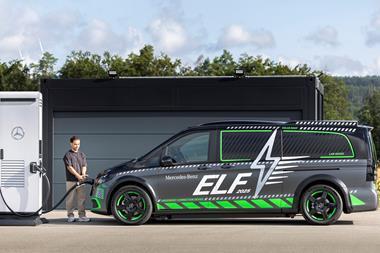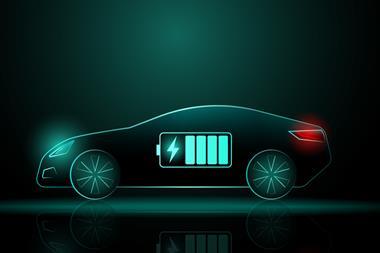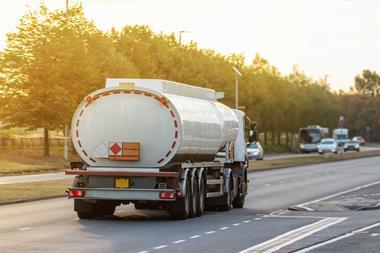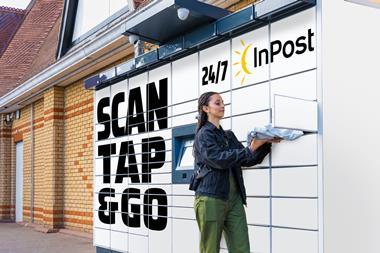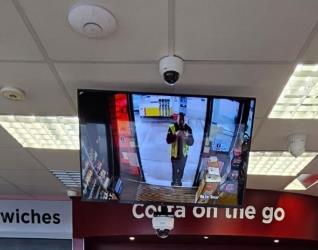
Four leading fuel retailers are the first to trial next-generation facial recognition technology aimed at stopping store crime at forecourts.
The operators – Valli Forecourts, Hockenhull Garages, Falcon Sharma Group and Laurels Group – have introduced the system at a total of 12 sites, and say they have made the move because of escalating levels of shoplifting in the sector and a lack of support from the police in tackling the problem.
Falcon Sharma Group diector Kumar Sharma believes many people are stealing from poverty or desperation – baby food is among the top items stolen from the company’s 12 forecourts. He has introduced the system from Vars Technology at five sites in the past couple of weeks in a bid to stem losses which are as high as £6,000 a year at his site at Ward End in Birmingham. As a result, he has identified several regular offenders who will be highlighted as high risks if they enter the premises.
Hockenhall Garages started to use the Vars Face technology last week to target repeat offenders at its Corby forecourt which has been hit with three armed robberies and is losing £300 to £500 a month to theft, mainly on alcohol. This is despite the business putting security tags on bottles and an alarm system onto the alcohol chiller, deliberately positioned near to the cashdesk, which alerts staff when its doors are open.
“We have been hammered here, and the police are so slow to react,” said managing director Joe Hockenhall. “We get groups of druggies picking times to come in when they can see that we are really busy and staff are distracted.”
Vars Technology – which also offers a complementary product aimed at stopping drive-offs – says its Vars Face system is designed specifically for the forecourt community, unlike others that are pitched to the wider retail sector.
In common with other facial recognition systems, it captures images of all customers and compares them to a central list of known criminal faceprints. If the system identifies a known offender an alert is sent to staff either discreetly or for the whole shop to hear.
Users upload details of offenders, together with CCTV coverage, onto a portal for Vars Technology to approve, checking for accurate reporting and compliance with GDPR data protection rules. The data is then shared across the network of users. The more retailers in one town or area using the system the more effective it is at pinpointing repeat miscreants.
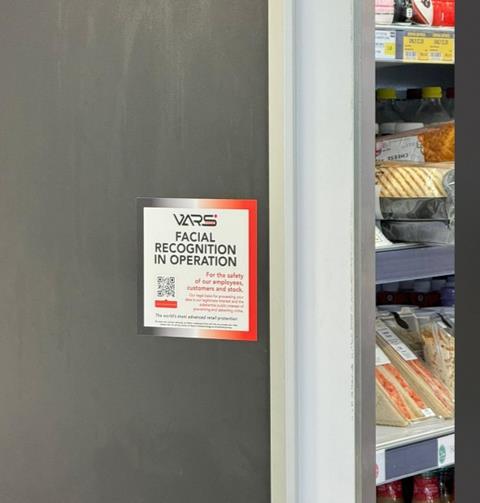
Facial recognition technology has been criticised by civil liberty groups as an infringement to privacy. But advocates insist it is an effective way that retailers can identify repeat offenders as they enter their store, with an alert sent direct to staff. Vars Technology says recordings are only kept of those who have offended previously and are ‘blacklisted’ on the system.
Keeping databases of known and suspected offenders is a controversial subject. Recently, the Southern Co-op was forced to defend its use of facial recognition technology from rival provider Facewatch. Campaign group Big Brother Watch filed a legal complaint saying the practice breached data protection with people being kept on a watch-list without them knowing.
However, earlier this week, the government gave the use of facial recognition technology the thumbs up in a series of measures to combat shop crime. It announced it was investing £55.5m in using the technology in public spaces, using mobile units, over the next four years to help catch perpetrators.
Others using the Vars Face technology, which highlights the severity of crime linked to the backlisted person, have been impressed. Guy White, managing director of Laurels Group, said that with 10 days of operating Vars Face he had already blacklisted one customer who stole £20 of vapes from his store in Horncastle, Lincolnshire. Guy is no stranger to tackling crime head on having set up a Facebook group – Lincs Fuel Watch – to share information on criminals locally because “the police are not helping us”. He added: “Having this latest Vars technology is like fitting security shutters outside your business rather than leaving just a glass panel. If you do this the criminal will move somewhere else.”
But he cautions that staff need to be trained in dealing with incidents when a blacklisted customer comes on site. “We have a senior person on site all the time who would deal with the situation. It could be that you follow the person around the store to make them feel uncomfortable, or hand them a piece of paper saying that they are not welcome in the store because of an earlier incident. We would never put our staff in the line of fire,” he said.
Kumar says he has identified several regular offenders already. He had been using the Facewatch facial recognition system and said that helped to cut shrinkage by £4,000 at Ward End. He said the attraction for him of switching to Vars Technology is that its system can be linked to the company’s ANPR vehicle registration recognition system.
Hockenhall Garages’ Joe Hockenhall said he was excited to see how the technology works out. The alternative, he says, is employing a security guard, which is “a very sad state of affairs and another labour cost”.
Vars Face will be launched to the wider market in the next few weeks. As well as a one-off £600 payment for the camera at the store entrance operators pay a monthly fee based on the number of faces recorded and analysed. For instance, to check 5,000 faces per day costs just over £300 per month, compared to £50 per month for 1,500.























